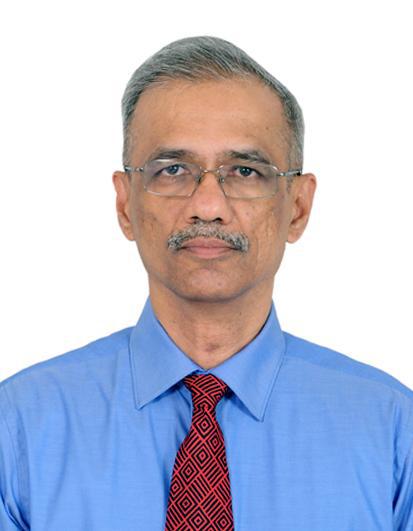LATE detection is one of the major issues among men suffering with prostate and testicular cancers, according to experts in Bahrain.
The delay is largely because the early symptoms are subtle or painless, and hence ignore, said Al Hilal Premier Hospital consultant urologist Arun Antony.
November is celebrated as Men’s Health Awareness Month and is dedicated to encouraging men to talk about their health, prioritise prevention and early detection for conditions like prostate and testicular cancer, and address mental health challenges.
The campaign promotes getting regular screenings, maintaining a healthy lifestyle and checking in with friends and family.
“When we talk about prostate cancer, the early stages are usually asymptomatic,” Dr Antony told the GDN.
“Many men assume urinary changes are just part of ageing or an enlarged prostate, and by the time they come to the clinic, the cancer may already have spread,” he added.
A weak urine stream, frequent urination at night or a feeling of incomplete emptying are typical symptoms to watch out for, he warned, noting that these signs are not specific to cancer.
“Testicular cancer tends to affect younger men, and here the most common presentation is a painless lump or swelling in one testicle.
“Unfortunately, because it is painless, many men tend to ignore it. Occasionally, some may feel a dull ache or heaviness in the scrotum.”
Prostate cancer is the uncontrolled growth of cells in the prostate, a gland in the male reproductive system below the bladder. It is the second most common cancer in men worldwide, with Bahrain having one of the highest reported rates of the disease in the region.
Testicular cancer develops in the testicles, also a part of the male reproductive system.
Movember – an amalgamation of the words ‘mo’, short for moustache, and November – is an annual global campaign focusing on prostate and testicular cancers and men’s mental health. Many even grow moustaches throughout the month to express solidarity with those suffering from the diseases.

Dr Antony
“Prostate-Specific Antigen and Digital Rectal Examination for men aged over 50 years and a monthly self-examination for younger men is important. When detected in the early stages both cancers are highly treatable and often curable,” Dr Antony noted.
He added that men with a family history or those of African and Middle Eastern descent are at a higher risk of prostate cancer and must ideally begin screening from the age of 45. However, many men shy away from it.
“Men worry about what a cancer diagnosis might mean for their masculinity, intimate life and fertility so they avoid screening or follow-up. Some stop treatment midway when they start feeling better especially after surgery or radiotherapy, without realising the importance of long-term monitoring,” he noted.

Dr Talwar
American Mission Hospital consultant urologist Dr Raghav Talwar concurred, saying that the primary impediment to the early detection of the cancers is patient delay, which is frequently attributable to psychological factors such as embarrassment regarding intimate examinations and fear of diagnosis, as well as practical barriers like a demanding work schedule.
“A prevalent but erroneous belief exists that overall good health and physical fitness confer immunity against these specific conditions, leading to a false sense of security and a neglect of necessary screenings. There are many stark examples of even super athletes diagnosed with advanced prostate or testicular malignancies,” Dr Talwar added.
Despite the bleak observations, the experts expressed optimism about the growing awareness of the disease in Bahrain and advanced treatment available in the kingdom.
“Bahrain is rapidly emerging as a hub for state-of-the-art diagnosis and treatment of prostate cancer,” Dr Talwar said.
Dr Antony noted that in Bahrain, there is a strong focus on early screening and education.
“Our approach now is not just treating the cancer but helping men live healthy, fuller lives after treatment,” he added.
Dr Antony shares lifestyle tips for good health:
- Regular Physical Activity: Exercise is one of the best things men can do for their heart, prostate and overall wellbeing.
- Balanced Diet: Eating plenty of fruits, vegetables, whole grains, and lean proteins helps maintain a healthy weight, supports immunity, and may even reduce cancer risks.
- Avoid Smoking and Limit Alcohol: These are major risk factors not just for cancer but also for heart disease, liver disease, and other serious conditions.
- Regular Health Checks: Screening isn’t just for prostate or testicular cancer – regular blood pressure checks, cholesterol, blood sugar, and age-appropriate screenings help catch problems early.
- Mental Health Awareness: Stress, anxiety, and depression are very common but often overlooked in men. Talk openly with trusted family, friends, or professionals, practise mindfulness, get enough sleep, and take time for hobbies or activities they enjoy.
- Open Communication: Discuss any symptoms – urinary changes, intimate health concerns, or mood changes – with your doctor early.
melissa@gdnmedia.bh


&uuid=(email))